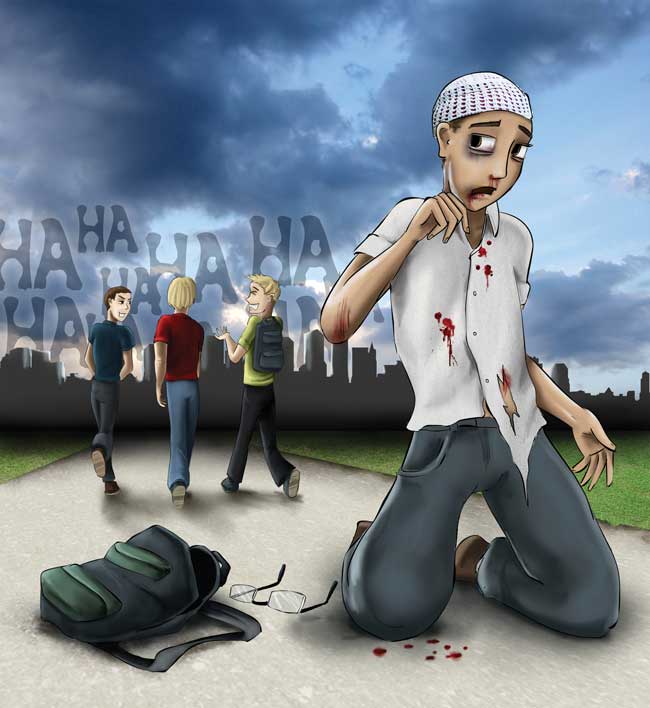ARTICLES, WHAT IS BULLYING? HOW TO STOP KIDS BULLYING NOW
Are You Guilty of Racial Discrimination?

Racist Comments
Do you feel uncomfortable around people who are a different colour, culture, or race? Have you ever picked on people or left them out because of these things? If so, think about your beliefs and actions. Why do you dislike these people?
Are you just parroting someone else’s beliefs or copying what you’ve seen on TV? Are you sure that what you’ve heard about them is true? Do you even know any of them personally or anything about their cultural history?
How to Stop Racism
Try getting to know someone who is a member of the race you don’t like. Give that person a chance to show you who he or she really is. Getting to know someone personally is usually very effective at dispelling any false ideas about a group as a whole.
If you are a teen and finding it hard to make friends because of racial discrimination, learn how to make friends and keep them that do not judge you for your culture or race.
When Racism Starts at Home: Are you a racist parent?
What are you teaching your children about racial tolerance? Do you ever let words like “Newfie” or “n**ger” slip out? Do you complain about the miserly Jew at work?
Racism is Learned
You may not think of yourself as racist, but it is important to understand what racism means, the effects of racism and the causes of discrimination. Remember that your children are like sponges. An offhand comment meant to be a joke or “just an expression” can hold a lot more meaning for your teen than you intend it to. Watch your words and ask other family members to do the same. Make your home a “racism-free” zone.
It is very important to discuss racial discrimination at home with your children. Watch this video that outlines how racism is a learned behaviour.
[youtube id=”UOVwrcTzRBs” width =”100%”]
Racism and the Media
Are your teens picking up racist ideas from peers or the media? Talk to them about it. Parenting expert Caralyn Percy suggests that you ask them exactly why they have these beliefs. “You really need to listen to what they say and don’t cut them off,” she says. “Sit back and let them communicate it all. It’s funny what happens when people listen to themselves and they’re not interrupted.” Sometimes, in hearing their own words, they realize how silly their ideas are or recognize that a particular belief isn’t even really theirs at all but that they’ve just picked it up from others.
Remember to monitor your children’s online behaviours, especially if you think they are developing racial discriminatory thoughts from the media. If you think your child is facing peer pressure to be racist, learn how to talk to your children about dealing and say no to peer pressure.
Racism in Schools
If you’re a member of a minority cultural group, talk to your teens regularly about any racist attitudes they might face at school or elsewhere. Arm them with positive information about their culture, and make sure they feel good about themselves and where they come from. Let them know they don’t have to put up with racism in any form, and that you’re there to help them face it down.







